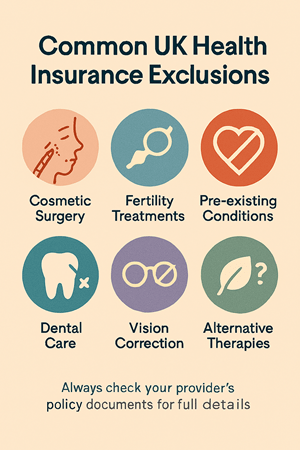What Is Private Health Care in the UK?
Private healthcare in the United Kingdom refers to medical services provided outside the publicly funded National Health Service (NHS). While the NHS offers comprehensive care free at the point of use, private healthcare allows individuals to access treatment faster, choose their specialists, and receive care in more comfortable settings. This system is funded either directly by patients or through private health insurance policies.
Why Do People Choose Private Health Care?

One of the main reasons people opt for private healthcare is reduced waiting times. NHS queues for non-emergency procedures can be long, and private providers often offer appointments within days. Additionally, private hospitals typically provide private rooms, flexible scheduling, and more personalized attention. Patients can also select their consultant, which is not always possible under NHS care.
Private healthcare is especially appealing for elective surgeries, diagnostics, and specialist consultations. For example, someone needing an MRI scan may wait weeks under the NHS but could have it scheduled within 48 hours privately. This speed and convenience are major selling points for those who can afford it or have insurance coverage.
How Does Private Health Insurance Work?
Private health insurance policies vary widely in terms of coverage, cost, and exclusions. Most plans cover inpatient treatment, diagnostics, and specialist consultations. Some also include outpatient care, mental health services, and physiotherapy. Premiums depend on age, health status, and the level of coverage chosen.
It’s important to read the fine print. Many policies exclude pre-existing conditions, maternity care, or chronic illness management. Some require referrals from GPs, while others allow direct access to specialists. Understanding what’s covered — and what isn’t — is crucial before committing to a plan.
Limitations and Considerations
Despite its advantages, private healthcare has limitations. Emergency care is still best handled by the NHS, which has the infrastructure and resources for urgent treatment. Additionally, private providers may not offer the same breadth of services, especially for complex or long-term conditions.
Cost is another factor. Without insurance, private treatment can be expensive. A single consultation might cost £150–£300, and surgeries can run into thousands. Even with insurance, excess fees and uncovered treatments can add up. It’s essential to budget realistically and understand the financial implications.
Choosing a Provider
When selecting a private healthcare provider, consider reputation, location, available services, and whether they’re recognized by your insurer. Many top providers offer online reviews, virtual consultations, and transparent pricing. Comparing options can help you find the right fit for your needs and budget.
Conclusion
Private healthcare in the UK offers speed, choice, and comfort — but it comes at a cost. Whether you’re considering insurance or paying out-of-pocket, understanding the system is key to making informed decisions. For many, it’s a valuable complement to NHS care, especially when time and flexibility matter most.

